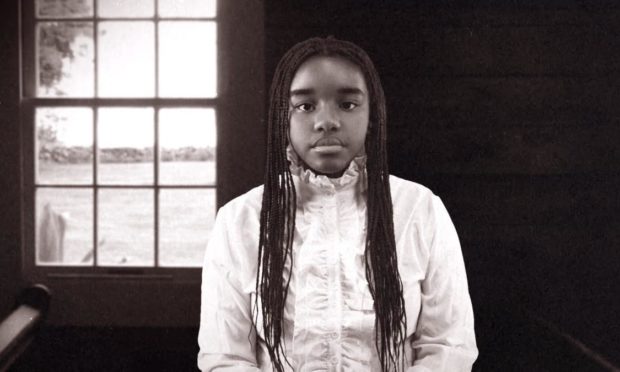The fascinating story of a young girl from Guyana who was uprooted to the Black Isle by her plantation-owning father is the subject of a new film.
Eliza, a new Gaelic drama based on the life of Eliza Junor, will receive its first public showing at this month’s Blas Festival.
The short film was made by Angus Macleod and produced by Gaelic arts organisation, Fèisean nan Gàidheal.
Eilidh Mackenzie, from Fèisean nan Gàidheal, has also composed a new Gaelic song, Òran Eliza, which is performed by Inverness Gaelic singer Ellen Macdonald as part of the festival.
The film will be available for download from the Fèisean nan Gàidheal Bandcamp on November 27, with money raised going towards a crowdfunding campaign for hungry children in Guyana.
Eliza was the daughter of Hugh Junor who owned a wood-cutting estate in Guyana in the 19th century that used slave labour.
In 1816 he took Eliza, then aged 12, and her brother William, who was seven or eight, from Demerara to settle in Fortrose, travelling thousands of miles by boat and horse-drawn coach over six weeks to their new home.
Local historian David Alston has been researching the story for more than 20 years and, although little is known about Eliza’s mother’s background, she was either a slave or a “free coloured woman” and did not accompany her children to Scotland.
Eliza and William were baptised at Rosemarkie and later attended Fortrose Academy where they both won prizes.
Eliza became a dressmaker and lived for a time in London. She died in 1861 and was buried in Rosemarkie churchyard.
In the film, Eliza is played by Edinburgh-based student Tawana Maramba, 18, while Ronan MacColla, 19, from the Black Isle, plays Hugh Junor.
Eilidh Mackenzie said: “Eliza’s story is an emotional one and provides us with an insight into the part played by Highland communities in the global slave trade.
“Schools throughout Scotland where Gaelic is taught as a first or additional language have been invited, in the lead up to Blas Festival, to watch the film and participate in accompanying workshops.
“With the rise in the Black Lives Matter movement, most children have an awareness of the topic but little understanding of Scotland’s direct connections to slavery and these are important topics to raise through education.”
Angus Macleod, Fèisean nan Gàidheal’s drama officer, added: “The project provided a great opportunity to work with a number of young, up and coming Gaelic speaking actors from across Scotland.”
The Blas Festival, which celebrates Gaelic culture, began on Friday and is taking place online over 11 days this month, via a variety of free and ticketed livestreamed and pre-recorded concerts, cèilidhs, workshops and other events.
The film is making its debut at a time when more is being done to highlight the links between the north and the slave trade.
Following a talk given by Mr Alston to the Cromarty Peace Group it was agreed that some reparation should be made for the exploitation of enslaved Africans and their descendants.
Cromarty families the Barklys and the Davidsons of Tulloch were among plantation owners in the early 19th century and their legacy is still evident in the Guyana villages of Cromarty and Nigg which Mr Alston visited in February.
The local group is now raising money for a project to help children in the town of New Amsterdam, a few miles from Cromarty and Nigg,
A project costing £5,000-£6,000 will refurbish a kitchen to provide free lunches for more than 50 children in the local primary school.
